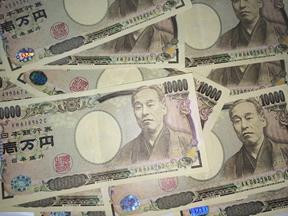The unexpected victory of Shigeru Ishiba as Japan's next prime minister, coupled with a series of mixed economic data, sent shockwaves through Japan's stock market, marking another "Black Monday" for the country.
On Monday, the Nikkei 225 index plummeted nearly 5%, with an intraday drop exceeding 1,900 points. By the evening, the futures for the Nikkei 225 index crashed by over 2,000 points, triggering a circuit breaker in trading.
The sell-off in Japanese stocks reflects renewed expectations for interest rate hikes by the Bank of Japan (BOJ).
Ueda Relieved as Rate Hike Possibility Emerges
Shigeru Ishiba's surprising victory last Friday sparked immediate speculation that the BOJ might now have room to raise interest rates without political resistance. Ishiba is expected to officially assume the role of prime minister following a parliamentary vote on October 1.
According to a report from CNBC, Ryota Abe, an economist at Sumitomo Mitsui Banking Corporation, said the election outcome indicates that the BOJ would not face political obstacles to further rate hikes.
Higher interest rates typically strengthen the yen while pressuring the Japanese stock market, particularly export-driven companies. A stronger yen diminishes the competitiveness of Japanese products in international markets, leading to concerns over future corporate profits.
Earlier on Friday, the yen had weakened against the U.S. dollar when economic security minister Sanae Takaichi won the first round of voting. However, when Ishiba defeated Takaichi in the final round of the Liberal Democratic Party election, the yen surged against the dollar.
Abe noted that the election result diverged sharply from market expectations. "Almost all market participants including SMBC and other political analysts had expected Ms. Takaichi to win in the run-off vote."
Takaichi had previously advocated maintaining low interest rates and had openly opposed raising rates to stimulate economic growth, which contrasts with Ishiba's perceived openness to such policies.
BOJ Governor Kazuo Ueda, who has indicated that the central bank would continue hiking rates if inflation consistently hits its 2% target, is likely relieved by the outcome. However, Ueda has also stressed the need to carefully assess the global economic uncertainties impacting Japan's fragile recovery.
Weak Economic Data and Strong Chinese Markets Weigh on Japan
Adding to the market volatility, Japan released weaker-than-expected economic data on Monday. Industrial output for August sharply contracted, falling 4.9% year-on-year. On a monthly basis, industrial production dropped 3.3%, exceeding the forecasted decline of 0.9% and surpassing the previous month's 3.1% fall.
At the same time, China's robust stock market performance exerted further pressure on Japanese equities. Last Friday, the CSI 300 index recorded its best weekly performance since 2008, while Hong Kong's Hang Seng Index marked its largest weekly gain since 1998.
On Monday, the Chinese stock market continued to surge, with the CSI 300 index climbing more than 8%, leading gains across Asian markets. Total trading volume across China's two stock exchanges hit a record-breaking 2.6 trillion yuan.
Britney Lam, a portfolio manager at Magellan Capital, noted, "Now given China's stimulus and turn of sentiment, Japan market will come under pressure."






